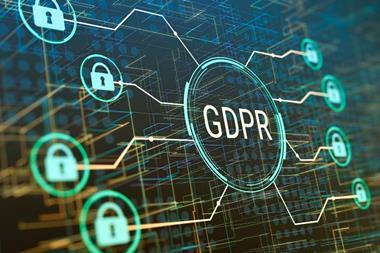Standards of corporate integrity have stayed the same or worsened since COVID began
More than half (55%) of employees and leaders from companies around the world believe that standards of corporate integrity have stayed the same or worsened over the last 18 months, according to the 2022 EY Global Integrity Report.
While a record (97%) respondents to the survey agree that integrity is important within their organisations, 41% say that the COVID-19 pandemic is making it more difficult to act with integrity in business dealings.
Andrew Gordon, EY Global Forensic & Integrity Services leader, commented: “The COVID-19 pandemic has had a serious impact on integrity standards for companies around the world. The change to ways of working throughout the COVID-19 pandemic has created a heightened risk of fraud and unethical behaviour.
“Hybrid working makes it difficult to undertake effective compliance monitoring, and fraud risk factors typically increase at a time of crisis because companies and individuals face more financial pressures.”
Tick box approach isn’t enough
In the last 12 months, there has been greater investment in integrity and compliance initiatives: 53% of responding organisations have a code of conduct in place, compared with 47% 18 months ago.
There is also an uptick in training programs, with 46% of businesses providing regular training on relevant legal regulatory or professional requirements, compared with 38% in 2020.
However, the survey highlights that this increased investment is not being communicated effectively and senior management is often over-confident in the effectiveness of its corporate integrity programs.
For example, while 60% of board member respondents say that their organisation has communicated the importance of behaving with integrity frequently in the last 18 months, less than a third (30%) of employee respondents remember seeing any communications on the topic.
There is also a gap between the views of board members and employees in relation to awareness of policies on working from home (80% vs. 51%) and awareness of training on data privacy regulations (52% vs. 35%).
Gordon added: Although organisations are investing more in communication and training programs, this is not enough. There is a worrying divide between investment in action and genuine change. A strong culture of integrity is vital, and businesses must review what is working and where there are issues to address.”
Along with a lack of awareness, there appears to be limited understanding of the critical importance of integrity, beyond compliance with rules and regulations. Only a third (33%) of respondents say that an important characteristic of integrity is behaving with ethical standards.
Setting the tone from the top
The survey highlights a further disconnect when it comes to behavior. There appears to be a willingness among the most senior executives to act outside the compliance rules.
Board members who were questioned as part of the research were five times as likely as employees to falsify financial records (15% vs. 3%) and six times as likely to say they would be willing to mislead external third parties such as auditors (18% vs. 3%).
Gordon commented: A progressive integrity agenda goes beyond frameworks and policy – businesses must look beyond box ticking and focus on creating an integrity culture at all levels within their organisations.
“Leaders should be under no illusion that integrity is an easy fix; however, the first step is setting the right tone from the top.”
Building compliance programs that are fit for purpose
The survey also looks at respondents’ views around data protection and privacy. Regulation in these areas has been the focus of new legislation over recent years and 61% of respondents agree that this is beneficial for business.
Gordon said: “The business landscape has evolved beyond recognition in the last two years and there are many new challenges that leaders must address. Managing data integrity in a hybrid world creates new risks; and businesses must adapt their processes in line with these risks.
“The bottom line is that even the best compliance frameworks can be breached if there isn’t a culture of doing the right thing. Providing training programs that are effective and memorable is one key element of changing future conduct and behaviors to establish a culture of integrity.”
”It’s people, not systems, that are ultimately responsible for fraud. That’s why building a strong culture of integrity is just as important as putting policies in place.”




















1 Readers' comment